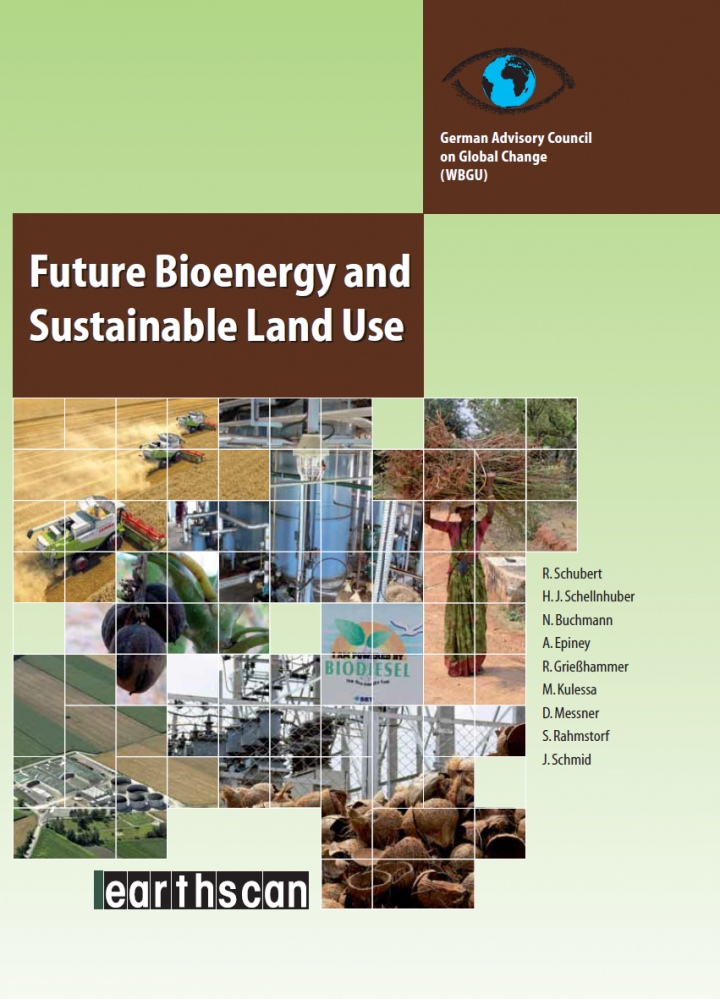
Published in: 2008
Pages: 393
Publisher:
German advisory council on global change (WBGU), Germany
Author:
WBGU
Uploaded by:
SuSanA secretariat
Partner profile:
common upload
4227 Views
6 Downloads
Content - Summary
The incipient global bioenergy boom is giving rise to vigorous and strongly polarized debate. Different underlying aims, such as reducing dependence on imported oil and gas or using biofuels to reduce the CO2 emissions of road traffic, predominate in different quarters and shape the political agenda. Supporters of bioenergy argue that, at a time of sharply increasing demand for energy, bioenergy can help to secure energy supply and to mitigate climate Change as well as create development opportunities, particularly in the rural areas of industrialized and developing countries. Critics, on the other hand, maintain that growing energy crops will heighten landuse conflicts as food cultivation, nature conservation and bioenergy production compete for land, and that bioenergy is likely to impact negatively on the climate. Because of the dynamics and huge complexity of the issue, as well as the considerable scientific uncertainty and the multiplicity of interests involved, it has not as yet been possible to carry out an integrated assessment of the contribution bioenergy can make to sustainable development. WBGU aims to show that the sustainable use of bioenergy is possible and to outline how to exploit opportunities while at the same time minimizing risks. To that end, WBGU presents an integrated Vision that will provide policy-makers clear guidance for the deployment of bioenergy. The principle behind the change of direction that is required must in WBGU’s view be the strategic role of bioenergy as a component of the global transformation of energy Systems towards sustainability. The guiding vision is inspired by two objectives:
• Firstly the use of bioenergy should contribute to mitigating climate change by replacing fossil fuels and thus helping to reduce greenhouse gas emissions in the world energy system. The fact that bioenergy carriers can be stored and used to provide control energy in power grids can make a strategically important contribution to stabilizing electricity supplies when there is a high Proportion of wind and solar energy in the energy Systems of industrialized, newly industrializing and developing countries. In the long term, bioenergy in combination with carbon dioxide capture and secure storage can even help to remove some of the emitted CO2 from the atmosphere.
• Secondly the use of bioenergy can help to overcome energy poverty. In the first place this involves substituting the traditional forms of bioenergy use in developing countries that are harmful to people’s health. The modernization of traditional bioenergy use can reduce poverty, prevent damage to health and diminish pressures placed on natural ecosystems by human uses. Some 2.5 Billion people currently have no access to affordable and safe forms of energy (such as electricity and gas) to meet their basic needs. Modern yet simple and cost-effective forms of bioenergy can play an important part in significantly reducing energy poverty in developing and newly industrializing countries.
WBGU’s central message is that use should be made of the global sustainable potential of bioenergy, provided that risks to sustainability can be excluded. In particular, the use of bioenergy must not endanger food security or the goals of nature conservation and climate protection.
Bibliographic information
WBGU (2008). Future bioenergy and sustainable land use. German advisory council on global change (WBGU), Germany
Filter tags
Biogas systems















